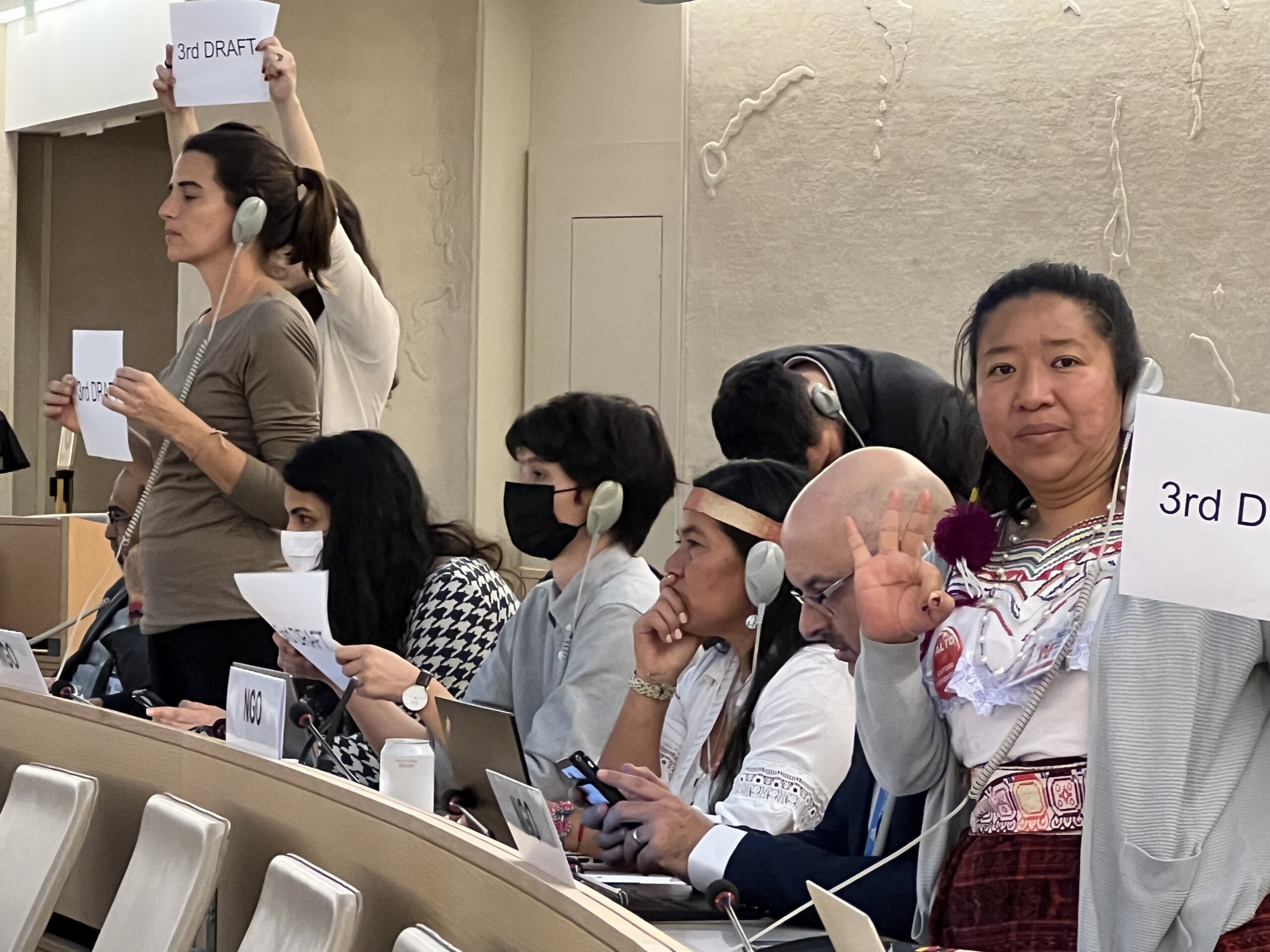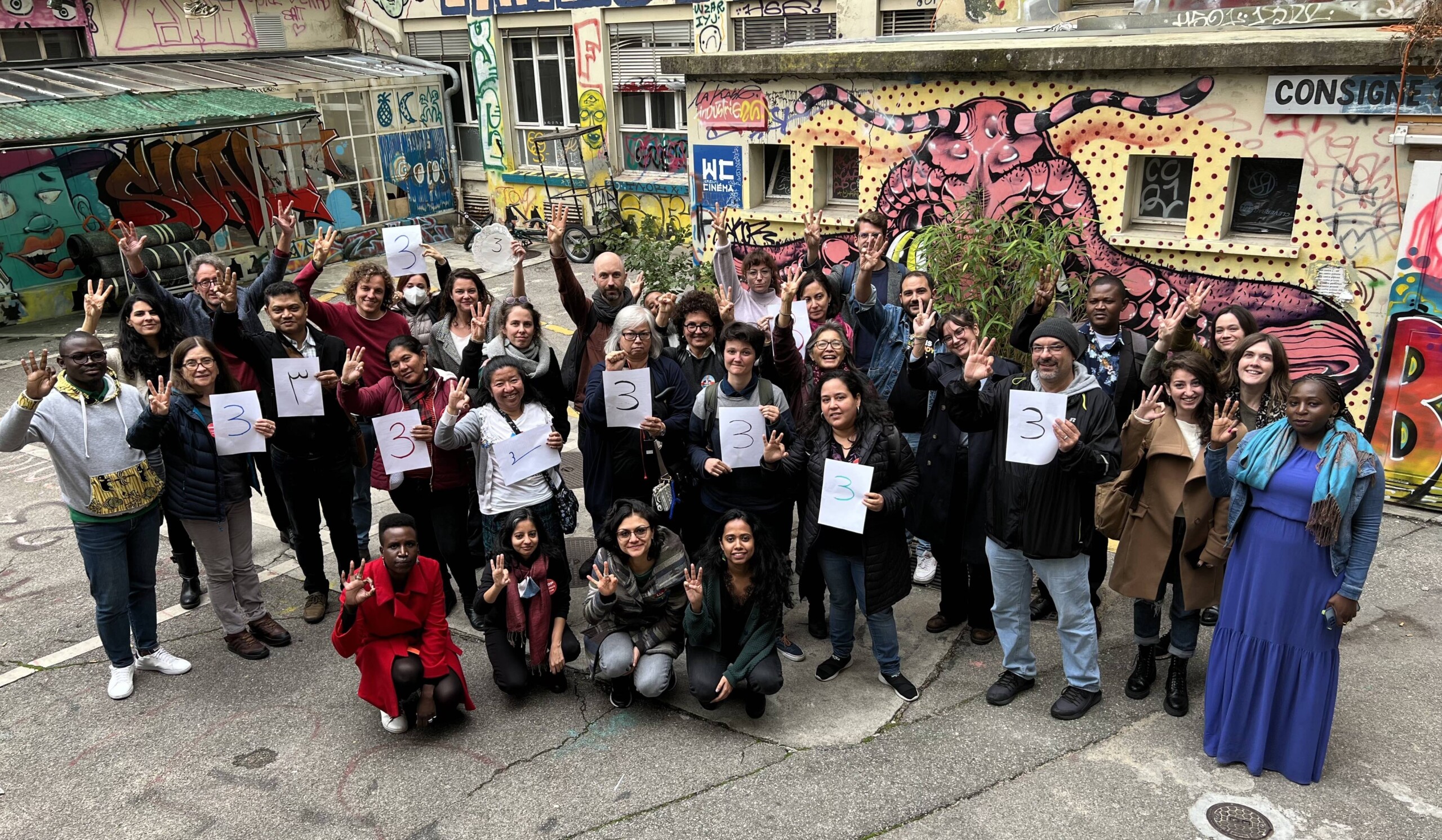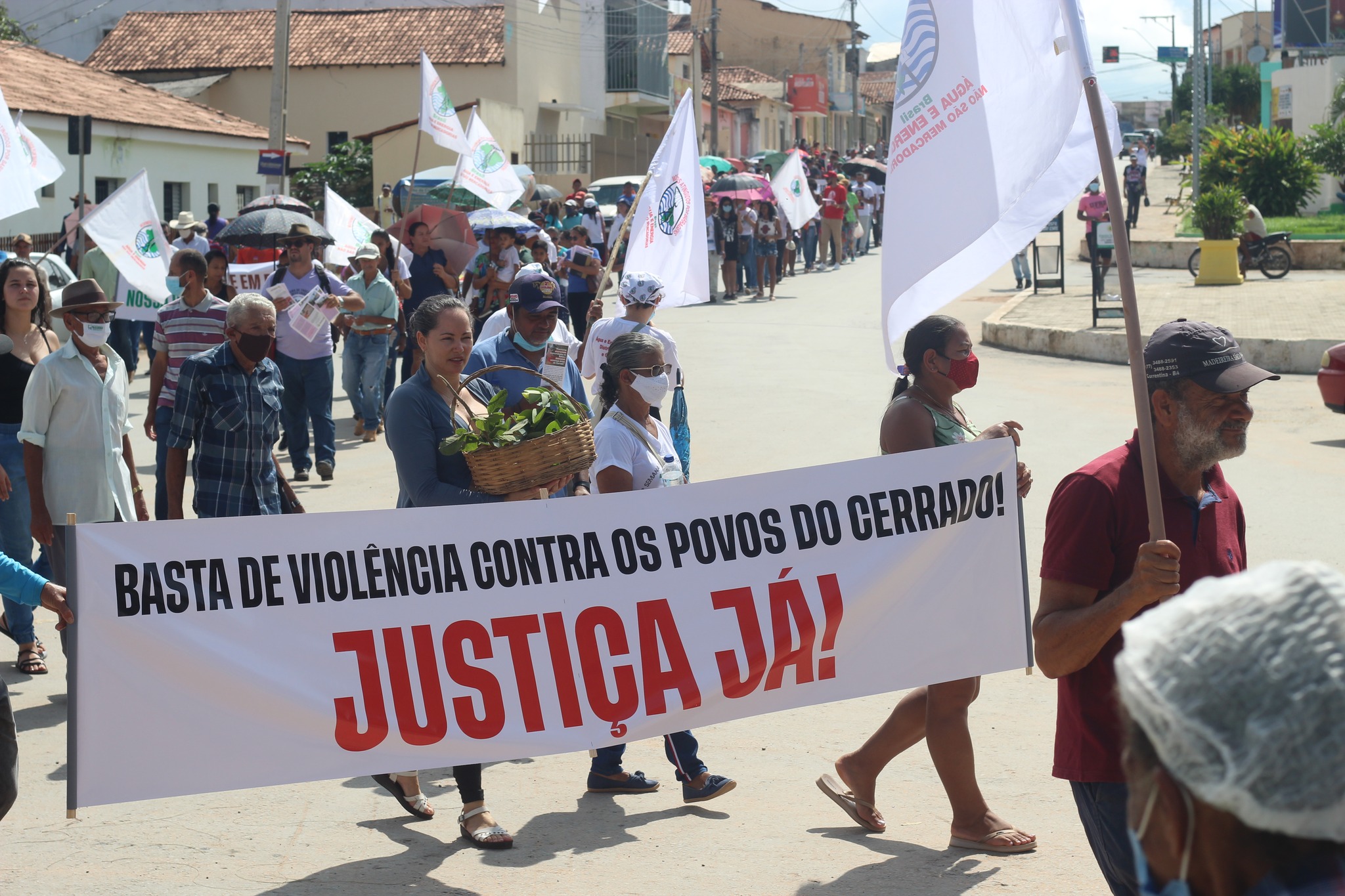The pursuit of ending corporate impunity continues to progress through the second draft of a legally binding instrument, but strengthening collective resolve remains essential to its urgent realization. Only through meaningful participation of States, civil society, and social movements in this process can the gaps in corporate accountability be genuinely closed, particularly concerning transnational corporations.
Amid widespread corporate impunity and the ongoing corporate capture of government institutions and decision making, we – members of ESCR-Net, call on States to prioritize domestic and international measures, including those of extraterritorial character, to ensure accountability for corporate-related abuses and violations, and in so doing meaningfully engage in consultation and negotiation processes on the second revised draft legally binding instrument, published by the Chairperson of the UN Open-ended Intergovernmental Working Group on 7 August 2020. We emphasize the urgency of proceeding with adopting a legally binding instrument, and further call on States to ensure the meaningful and effective participation of human right defenders, affected communities, workers, social movements and civil society organizations from around the world in all aspects of this process.
Throughout the COVID-19 pandemic and long before, corporations have taken advantage of situations of crisis – placing people at increased risks of human rights abuses and violations – particularly indigenous communities, women, ethnic minorities, asylum seekers, migrants, and refugees. We have seen corporate actors taking advantage of this moment of crisis to maximize on profit, expand their operations by displacing communities, altering, or abandoning State-issued human rights and environmental regulations, and much more. In the meantime, the domestic legislative and judicial systems in the majority of countries around the world too often sacrifice public interest to serve the narrow interests of corporate elites and investors. Corporations are abusing our human rights and harming our environment. In a global call to action responding to the COVID-19 crisis, we highlighted that governments and corporations are imposing false choices, such as between contagion and starvation, hazardous work and unemployment, corporate bailouts and ruin, personal security, and public health. These symptoms of corporate power are driving us to strongly call on our States, now more than ever, to reinvent the normal and create a system that will allow us to hold corporations accountable in an end to corporate impunity. Voluntary efforts towards the advancement of global respect for human rights in business have proven insufficient. Therefore, our collective effort has long supported a strong legally binding instrument to stop impunity by preventing abuses and violations, regulating corporate activities, and ensuring access to justice and remedy grounded in international human rights law.
In several ways, the second revised draft binding instrument has positively addressed some of our demands and introduced recommended language that ESCR-Net members shared last year in a collective position paper in a step towards strengthened corporate accountability. Yet, we are concerned that some key elements remain missing from the revised text and key issues regarding transnational accountability have been weakened or are less clear as before.
Positive developments
We commend the inclusion of the UN Declaration on Human Right Defenders that allows for an expansion on the protection of human rights defenders, victims and individuals impacted by corporate activity in the new text (preamble, Art 2.1, Art 4). We also welcome the inclusion of language from CEDAW and the Beijing Platform for Action that enhance the overall progressive position of the instrument on protection from a gender perspective (preamble, Art 4.2.e, Art 6.3.b, Art 8.5). We see more clarity in certain aspects related to corporate capture (Art 6.7), and particularly agree that the new insertion of language on sanctions against companies who do not comply with the provisions of the legally binding instrument is a key measure towards greater accountability (Art 6.6, Art 8.4). On corporate liability, it is relevant to note that the current draft provides that human rights due diligence shall not automatically absolve liability for causing, contributing to or failing to prevent human rights abuses (Art. 8.8). We have also seen an improvement in the section on jurisdiction where international doctrines of forum non-conveniens (Art 7.5) and forum necessitatis (Art 9.5) are adequately addressed to ensure access to justice is not impeded. We also acknowledge an improved approach to the primacy of human rights in relation to trade and investment agreements – though it is not clear how this would be realized in practice (Art 14.5.a). In all the above-mentioned, we believe the language could still be fine-tuned to further strengthen the draft instrument – this will be addressed in a written submission that we are collectively working on as members of the Network.
What concerns us?
State obligations must be clearly fleshed out in the LBI, particularly pertaining to State-owned enterprises and the consequences of failing to comply with the legally binding instrument (Art 8). While the inclusion of informed consent of indigenous Peoples is a positive development in compliance with international law, this consent must be continuous in all stages of a corporate project, including prior to the commencement of a project (Art 6.3.d). Access to information must be guaranteed prior to the commencement of and during the business activity, as well as in the remedy process (Art 4.2.f). Safeguards to prevent and remedy corporate abuse and involvement in violations in conflict-affected areas, including situations of occupation, must be better articulated (Art 6.3.g). The rights of peasants and other people working in rural areas must be addressed (preamble, Art 6). Focus on the accountability of transnational corporations must be further strengthened and with it provisions of extraterritorial obligations, particularly in relation to responsibilities within the value chain. Legal liability of corporations, particularly of parent companies, must be clearer and more directly applicable (Art 6, Art 8). Reversal of the burden of proof should be mandated directly in the text of the LBI and not depend on the domestic laws of each country (Art 7.6). Environmental impact assessments should be continuous and schedules for consultations should be timely publicized (Art 6.3). These are some of our initial observations – to be expanded and added upon in our upcoming written submission.
In conclusion, we call on States to:
- Meaningfully engage and support negotiations for a strong legally binding instrument to end corporate impunity and ensure genuine access of victims to remedy.
- Ensure that accessible platforms of participation are provided by the UN Secretariat allowing for the meaningful participation of human rights defenders, affected communities, social movements, and civil society (including those with weak internet access) in all aspects of this process. At the very least, Spanish, French, and Arabic interpretation must be provided in formal and informal consultations and negotiation sessions – whether held online or not. All interventions must be uploaded online immediately following delivery and respect for differing time zones is essential.
We further urge States, the UN, and relevant stakeholders to consider advancing process with urgency. A robust legally binding instrument is key to the advancement of a stronger human right agenda in business.





